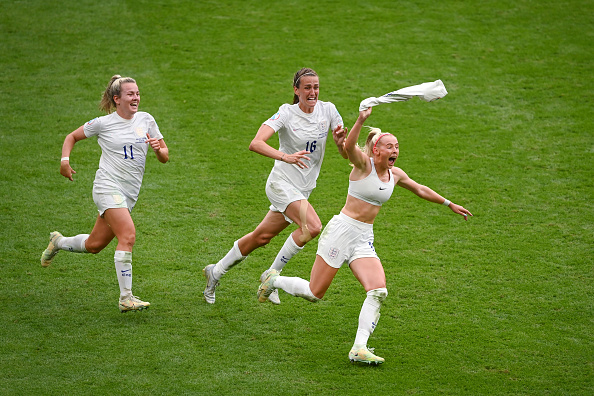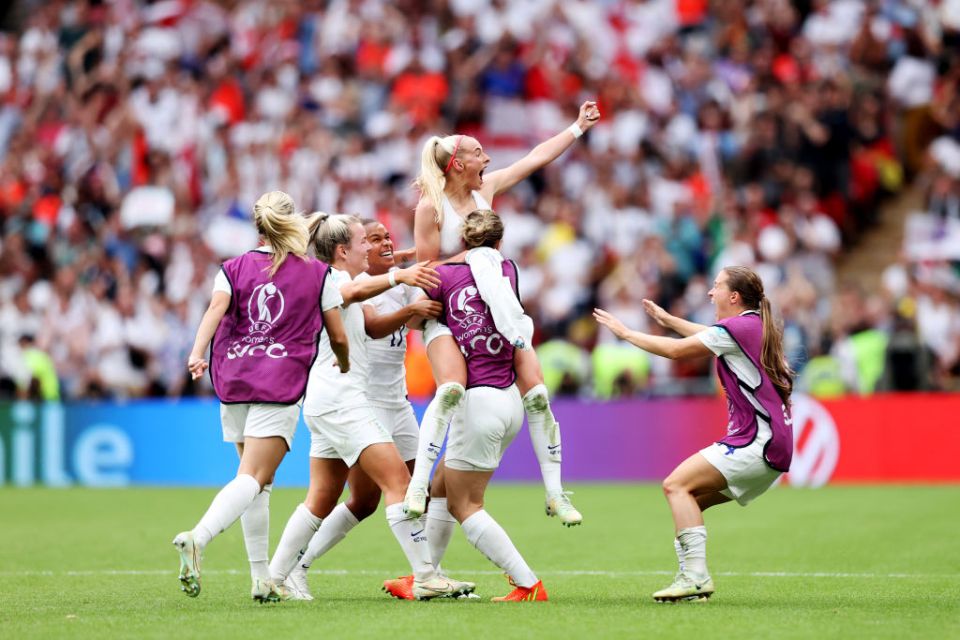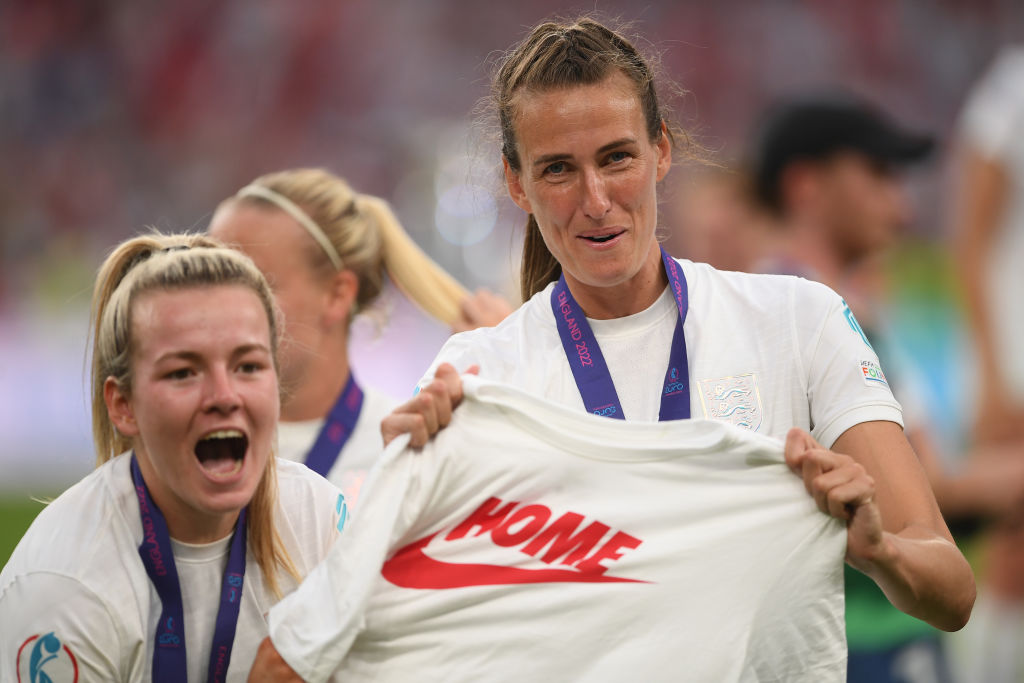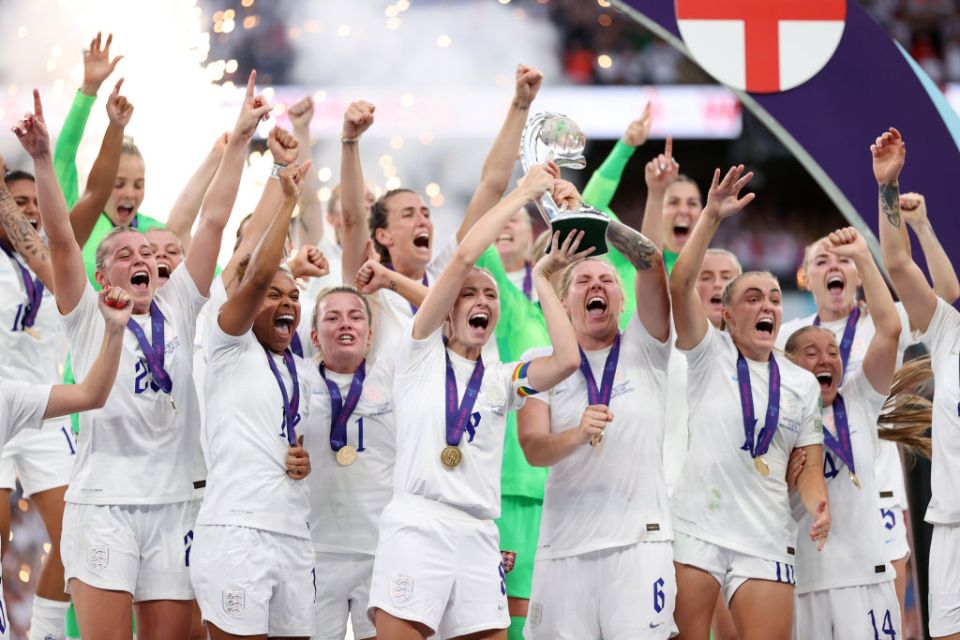England Women set for sponsorship offers after Euros success turns Lionesses into stars

The stars of England’s success at Women’s Euro 2022 could be in line for lucrative personal sponsorship deals as a result of the tournament making them household names.
Lionesses including captain Leah Williamson and super-sub Alessia Russo have enjoyed greater prominence than ever as women’s football has made the front and back pages.
But the game will only cash in to the full if it can drive greater year-round interest outside of major tournaments, say sports marketing experts.
“On the player side, we have seen more footballers become superstars and household names in recent years and the Women’s Euro will contribute to that further,” said Annie Panter, managing director of ventures at Two Circles.
“That opens up great personal endorsement opportunities, however, it is absolutely key that to maximise future commercial potential across the game, the level of interest in women’s football has to be maintained outside a peak like that delivered by the Women’s Euro.”
Women’s football has in recent years started to attract significantly greater media rights and sponsorship income.

England’s Women’s Super League (WSL) began a landmark £8m-a-year broadcast deal with Sky and the BBC last year, while European governing body Uefa banks a similar amount from Dazn and BeIN Sports for the Women’s Champions League.
Those sums remain dwarfed by the money generated in the men’s club game, where the Premier League’s global media rights are worth £10bn every year and Uefa expects to grow Champions League revenues to more than £12bn for its next three-year cycle.
Female footballers earn far less at their clubs, with England and Barcelona right-back Lucy Bronze thought to be the squad’s top earner on £200,000 and the average salary in the WSL being just £30,000. Cristiano Ronaldo is reported to earn £26m a year at Manchester United.
Lucrative endorsement deals are also rare in women’s football compared to other sports. Tennis player Naomi Osaka, the world’s top-earning female athlete, banks £45m a year in sponsorships, according to Forbes.

Norway star Ada Hegerberg recently signed a deal worth more than £1m with Nike, while Williamson has contracts with Gucci and Pepsi.
Women’s football has, however, now shown that there is a business case for brands to back it, beyond the favourable optics.
“The Women’s Euro has reached new levels of awareness and engagement that will change the landscape and commercial viability of women’s football not just in the UK but across Europe,” said Panter.
“Over the last decade, much of the investment women’s football has received via sponsorship has been due to pure corporate social responsibility plays on the brand side.
“Now, due to the interest being received by women’s football – and the tangible impact events, leagues and teams can demonstrate in terms of how they can help a brand positively influence fans – women’s football represents a powerful purpose-led sponsorship platform that generates genuine commercial return on investment for a brand.”

